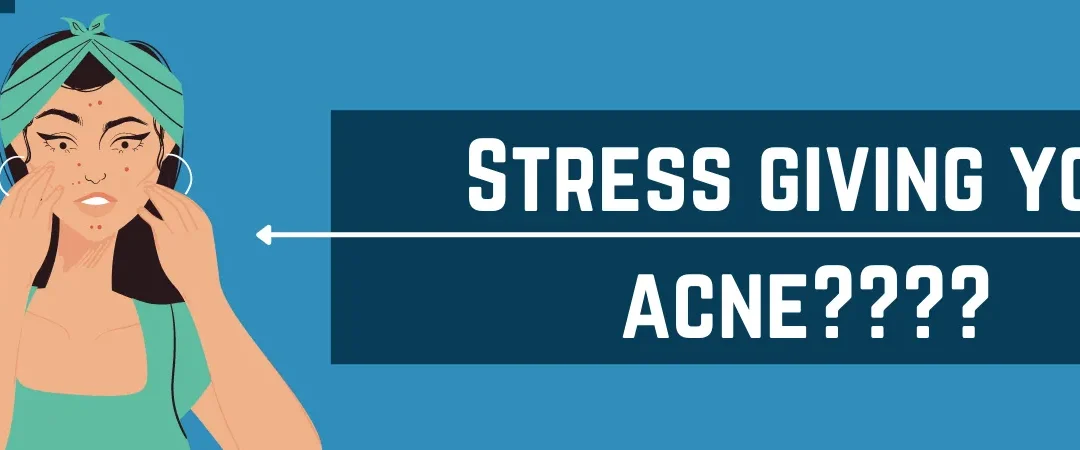Experiencing impact of stress on acne may be more than a coincidence. Although stress does not cause acne in itself, research has shown that it can induce hormonal changes in people who are already prone to breakouts, making their condition worse.
Dr. Archit Aggarwal, the founder of the world-class skin and hair facility KDC Clinic, says that while you may be employing many different ways to clear your skin, lowering your stress level may be particularly beneficial for you.
If you are bothered by persistent acne, and home remedies do not seem to make much difference, please consult with Dr. Archit Aggarwal, among the best skin specialists in Faridabad.
How Does Stress Affect Your Hormones?
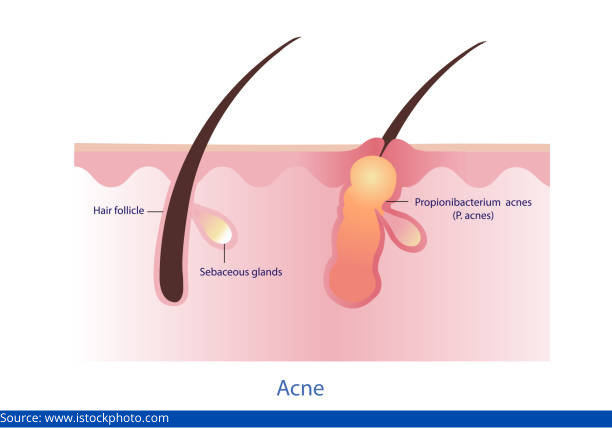
Acne-prone skin is the outcome of various factors that contribute to the formation of clogged pores, some of which are affected by hormones such as androgens and cortisol released by your endocrine system in reaction to stress.
They increase the amount of sebum produced by glands surrounding your skin hair follicles within the pilosebaceous unit. Sebum is an oily substance that protects and nourishes your hair follicles while also acting as a protective barrier for the immune system of the skin.
Propionibacterium acnes is a bacterium that lives in the human skin and feeds on sebum. When the population levels of this bacteria are high, it causes stress on the duct through which sebum flows and triggers an immune system response.
This response causes your white blood cells to release an enzyme that ruptures the wall of the affected hair follicle, allowing its contents to be secreted into the hair shaft and triggering an inflammatory reaction.
Dr. Archit Aggarwal, the acclaimed skin and hair specialist, explains that these variables, both individually and collectively, play a role in creating and maintaining the acne-causing ecology.
He further states that not just in this regard, but lowering stress can aid in the prevention of other, more severe health concerns.
How Do I Know If My Acne Is Stress-Related?
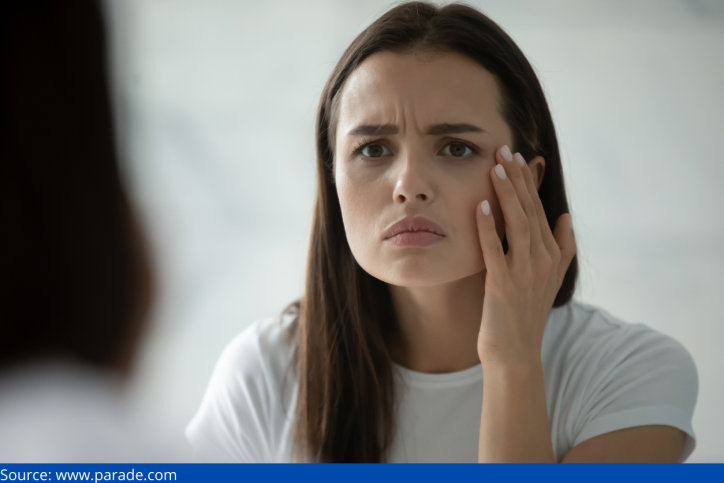
While it is impossible to tell whether stress is causing your acne in a definitive manner, you can keep a journal of when you are worried and when you get pimples over a period of some weeks.
- If your breakouts coincide with periods when you are stressed out, there may be a connection between the two.
- If your acne breakouts do not coincide with times when you are stressed, the acne may be caused by environmental causes such as pollution. Determine whether you consistently acquire breakouts in the same areas, such as your cheek or side of the face where you usually hold your phone.
In addition, keep in mind that stress-related habits may be contributing to the severity of your acne.
What Are Stress-Related Habits?
Stress-related habits are things that you instinctively do more often than usual when under a lot of stress. Examples of such habits that can in turn contribute to your acne worsening include:
1. Drinking more stimulants
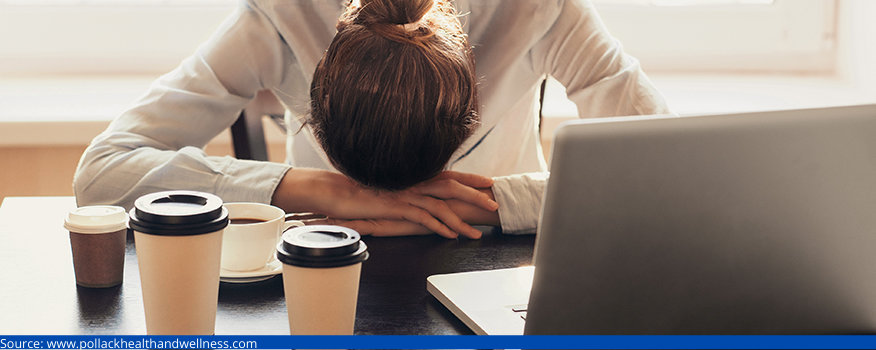
Many people tend to drink more tea, coffee, or other stimulants when under stress. This can result in an increase in cortisol production, which can, in turn, have a negative impact on your microbiome.
2. Smoking more cigarettes than usual

When you smoke one cigarette, your blood flow is restricted, starving your skin of oxygen and nutrients (such as Vitamin A) required for your skin to stay healthy and rejuvenate.
The more you smoke, the more airless of an environment you create around your face. The propionibacterium acnes, which we read about earlier, thrive in an airless environment.
Dr. Archit Aggarwal, among the leading dermatologists in Faridabad, adds that other factors, all of which can easily happen when you are under stress, can exacerbate adult acne, such as:
- Neglecting your self-care needs
- Altering your diet
- Hurrying through your skincare routine
How Can You Prevent Acne?
You can follow some techniques to prevent all types of acne, including certain simple daily practices, such as:
- Wash your face correctly using sulfate-free gentle cleansers twice a day
- Only use products that are safe for your skin type
- Use a Water or gel-based noncomedogenic moisturiser to keep your skin hydrated
- Check with your dermatologist about using over-the-counter (OTC) products with ingredients like salicylic acid, benzoyl peroxide, etc
- Keep yourself hydrated by having at least 8 glasses of water daily
- Limit your makeup as it will further clog your pores
- Avoid touching your face too much; ensure your hands are clean before touching your face
- Limit your sun exposure; always use water or gel-based SPF 30 sunscreen that is non comedogenic
- Do not squeeze your pimples as it will spread the bacteria
- Stay calm through activities such as meditation, massage, exercising, etc
How To Reduce Stress-Related Acne?
No matter the kind or cause of acne, acne treatment begins with a regular and dedicated skincare regimen. If stress is a contributory cause, lowering your stress levels may be all that is required in addition to the other measures to keep your skin under control.
Make an effort to notice and remain attentive to the times of the day or the kind of situations that trigger your anxiety to devise stress-reduction tactics. This is quite personal, and achieving success can require a significant amount of time and improved awareness. Find the tactics that work the best for you and devote your time and energy to them.
In addition, consuming nutritious meals that are beneficial to your gut bacteria can aid in the prevention of any changes in your gut caused by stress.
Conclusion
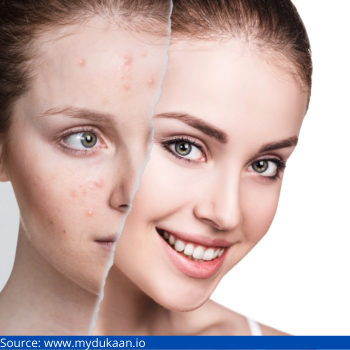
Acne can be caused by various factors, including hormones, stress, genetics, and food. Some drugs may even cause outbreaks when taken in large doses. Several studies have revealed that our stress levels have shot up higher ever since the pandemic began. Although stress does not directly cause you to break out, it certainly worsens the condition. It is vital to realize that you are not alone, that you have nothing to be embarrassed about, and that it is manageable with the proper treatment.
The top-notch skin specialist, Dr. Archit Aggarwal, states that setting realistic expectations and goals, balancing your responsibilities, and getting proper sleep will go a long way in reducing self-inflicted stress.
If you feel that your acne is caused by stress or hormone imbalances, do not hesitate to book an appointment with Dr. Archit Aggarwal for immediate acne treatments to help you recover more quickly from your breakouts. He is highly passionate about providing reliable and effective treatments to his patients and believes everyone should live a happy, confident, and stress-free life.

